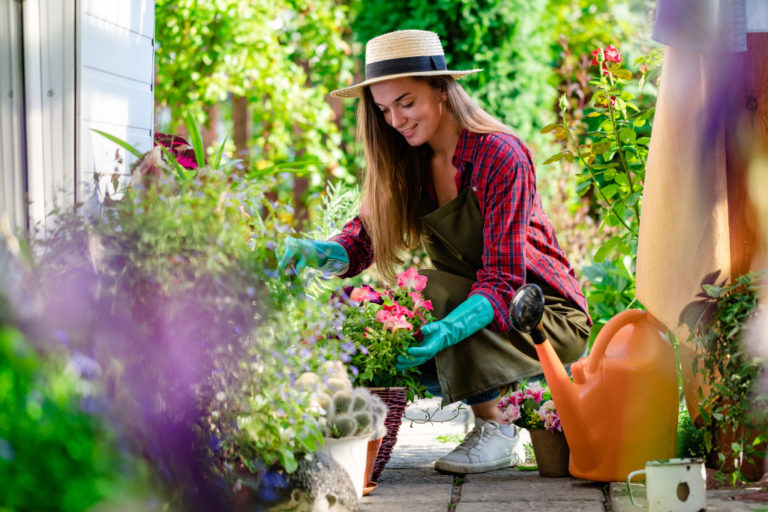There’s no doubt that gardening is a hobby that can bring joy. It allows you to get in touch with nature, and it can also be a great way to relax and de-stress. But it can also be frustrating when your plants don’t seem to be growing as well as you’d like them to.
If you’re struggling to keep your garden healthy, there might be a few things you’re doing wrong. Below are some gardening tips to help you create a thriving garden, no matter what conditions you’re working with.
Start with good soil
One of the most critical factors in growing healthy plants is starting with good soil. If your soil lacks nutrients, it will be challenging for your plants to thrive. You can purchase a testing kit at your local nursery or garden center to test your soil. It will give you an idea of what nutrients are lacking and how you can amend the soil to improve plant growth.
You can also add organic matter to your soil to help improve its quality. It can be in the form of compost, manure, or leaves. Adding organic matter will provide nutrients for your plants and help the soil retain moisture, and improve drainage.
Once you get your soil in good shape, you’re one step ahead of the game to keep your plants healthy.
Choose the right plants
Not all plants are created equal, and some will be better suited to your specific gardening conditions than others. So, it would help to do your research before purchasing plants and make sure they will be able to grow in the light and temperature conditions present in your garden.
It would be best to consider how much maintenance each plant will need. If you’re not looking to spend a lot of time caring for your plants, choose low-maintenance ones. This way, you can still enjoy your garden without all the work.
If you want to take a more natural approach, try to choose plants that are native to your area. They will be more likely to thrive since they’re well-accustomed to the climate and conditions where you live. Don’t hesitate to ask your local nursery or garden center for recommendations.
Give them enough light and water
All plants need sunlight and water to survive, but the amount they need will vary depending on the plant. Make sure you know how much sun and water each of your plants needs and give them what they require.
If you’re unsure, err on giving them too much rather than too little. It’s easier to provide extra water than makeup for its lack. Besides, most plants will do better with too much water than not enough.
However, be careful not to overwater your plants. It can lead to problems such as root rot, which can kill your plants. So, make sure you’re aware of the signs of overwatering and take action to correct it if you see any of these issu
Update your landscaping

The plants in your garden aren’t the only things that need care and attention. Your landscaping does too. If you want a healthy garden, you need to ensure your landscaping is up to par.
You can maintain your curb appeal in simple ways. You can use spray-on industrial solutions such as Intermountain Coatings to ensure your concrete gets protected from the elements. It will help it last longer and keep it looking good.
It would also be best to invest in quality mulch for your garden beds. It will help retain moisture, suppress weeds, and give your garden a neater appearance. In doing so, you’ll be closer to having a healthy garden you can enjoy.
Keep an eye out for pests and diseases
Pests and diseases can wreak havoc on your plants if you’re not careful. Be on the lookout for early signs of trouble, such as wilting leaves or spots on the leaves.
Remove any pests by hand if you see any problems, such as aphids or caterpillars. You can also use an organic pesticide to get rid of them. Be sure to follow the instructions carefully so you don’t harm your plants.
As for diseases, the best way to prevent them is by practicing good hygiene. That means cleaning up any dead leaves or debris and disposing of them properly. It would help if you also disinfected your tools after each use. By doing these things, you can help stop the spread of diseases.
Maintaining a healthy garden takes some effort, but it’s worth it. With good soil, the right plants, and proper care, you can have a thriving garden in any condition. Keep an eye out for pests and diseases, so they don’t take over. With perseverance, you can have the healthy garden of your dreams.
